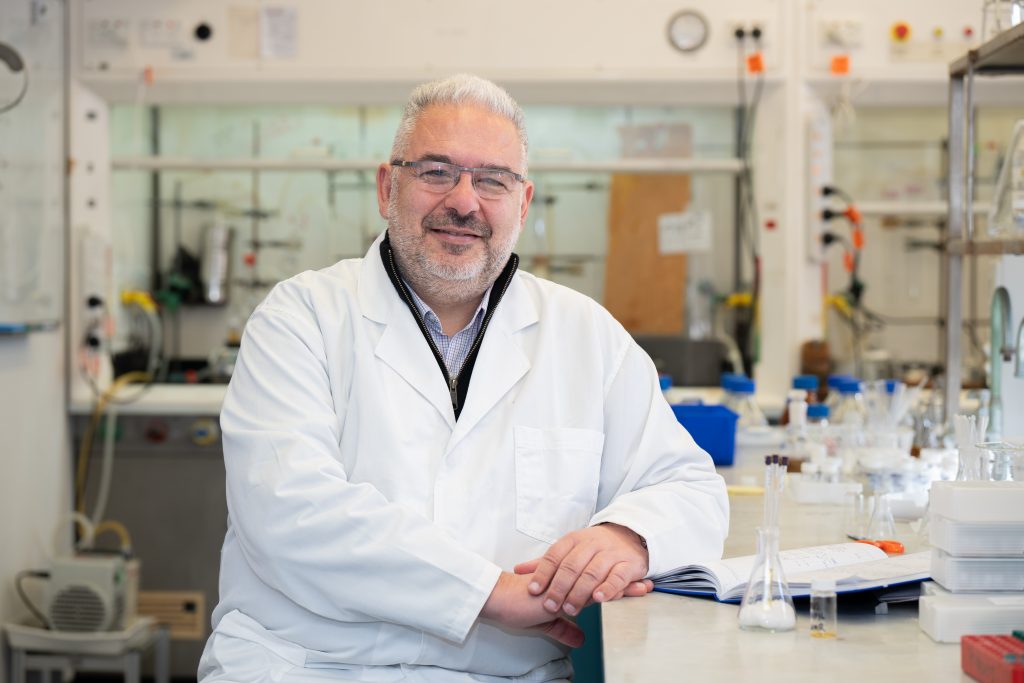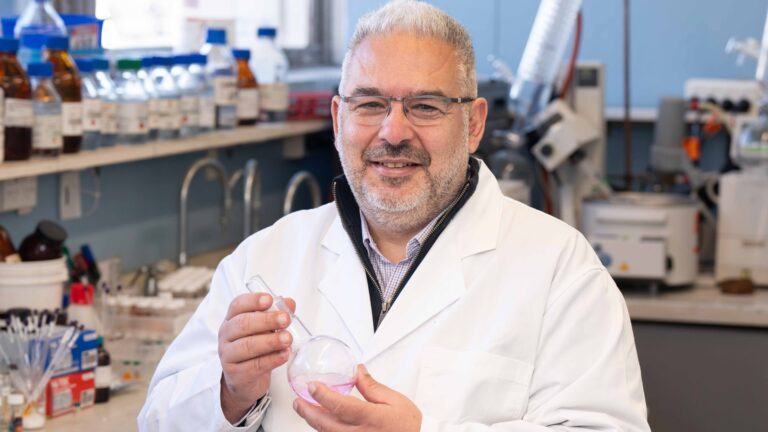Australian Greek Professor Michael Kassiou has been named a finalist for the Australian Museum 2023 Eureka Prize.
Professor Kassiou is a finalist for the Eureka Prize for Leadership in Science and Innovation. He is credited with pioneering new approaches to drug discovery for challenging health problems such as brain disorders and cardiovascular disease.
In anticipation of the Eureka Awards evening on Wednesday August 23, The Greek Herald spoke with Professor Kassiou to hear about his career and the influence of his Greek heritage on his life.
Congratulations on being named a finalist for the Eureka Prize for Leadership in Science and Innovation. How does it feel to be recognized?
I am honored to be a finalist for the Eureka Awards. It makes me proud of the years of hard work my team and I have put into trying to make a difference in our research. It’s recognition for everyone who contributed, no matter how big or small.

Tell us a little about your Greek heritage/upbringing.
My parents are both Greek, originally from the islands of Kos and Rhodes, and came to Australia in the early 1960s. They worked hard, made many sacrifices and struggled with the English language, as many did at home. time, in order to establish a better life. They would go to great lengths to make sure we had all the opportunities they didn’t get.
Yet, they successfully raised three children, instilling in us strong values/morals, faith and the need to aspire to make our dreams a reality. Any success we have is a reflection of them, and I am and always will be extremely proud of them and my Greek upbringing.
You have recently developed molecules that could potentially provide a method of treating dementia, depression and schizophrenia. Can you detail how this discovery took place?
We have been trying for more than a decade to discover small molecules that can activate the brain’s oxytocin receptors. Intranasal oxytocin, the endogenous peptide responsible for activating these receptors, is now used in clinical trials. However, there are significant limitations to the use of oxytocin, including its instability and difficulty in reaching the brain.
We found the first non-peptide small molecules capable of entering the brain and activating these receptors by employing a clinical non-oxytocin receptor candidate produced in our laboratory. We have identified compounds that activate the oxytocin receptor in a variety of ways, which is very exciting because it allows us to examine the role of oxytocin receptors in brain disorders in a way that was not previously possible. possible before.
How will this medical innovation challenge/revolutionize the way these pathologies are currently treated?
Many psychiatric and neurological disorders are characterized by antisocial symptoms, such as social withdrawal and poor social cognition, which are closely linked to oxytocin receptor function. Despite this, we do not have effective pharmacotherapies for the social symptoms of these conditions.
We know that social interactions are a building block of society and necessary for maintaining good health and longevity. Our medical innovations will help people suffering from these conditions re-engage in society and lead meaningful, productive lives.
How has your Greek education influenced your work and these innovations?
I was raised from a young age to understand the importance of family, especially extended family, which is part of our Greek culture. It is our support system and gives us a sense of belonging. It was therefore almost inevitable to make discoveries that could benefit others. I try to instill these values in my own children and remind them that your legacy will always be what you did for others and not for yourself.
What advice would you give to other young people who want to get involved in the medical field?
Sometimes we can get caught up in the security and routine of things. My advice is to be brave and challenge yourself. Nothing stifles possibility and creativity more than the all-too-familiar phrase “we’ve always done it this way.”
Is there anything else you would like to say?
It is important that we continue to mentor young researchers and provide them with an environment that helps them maintain a curious mind in the application of scientific rigor. It is essential to ensure that the next generation of research leaders can continue to have a positive impact on society.
I’m quite proud of my eldest daughter Tina who is currently studying Medical Science and I can’t wait to see what she and her siblings Sophie and Steven achieve in the future.
Winners of the AM Eureka Awards will be announced on Wednesday 23 August at a ceremony at the Australian Museum. A live stream of the awards will also be available online. Sign up for the live stream at australian.museum/eurekaprizes.


